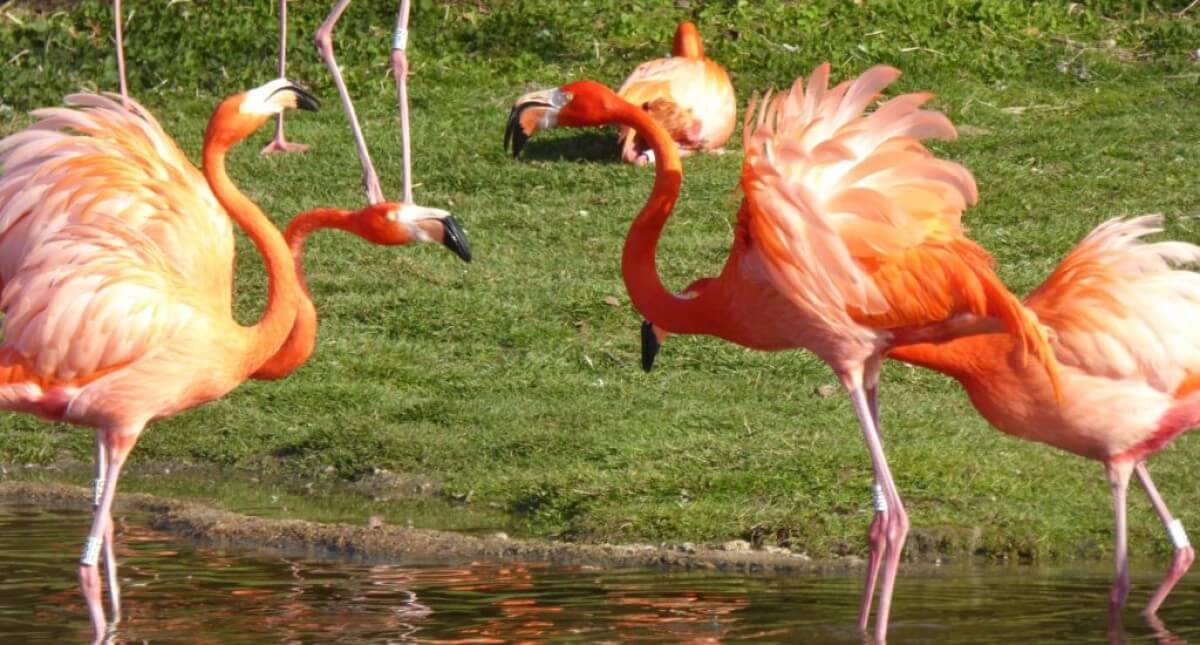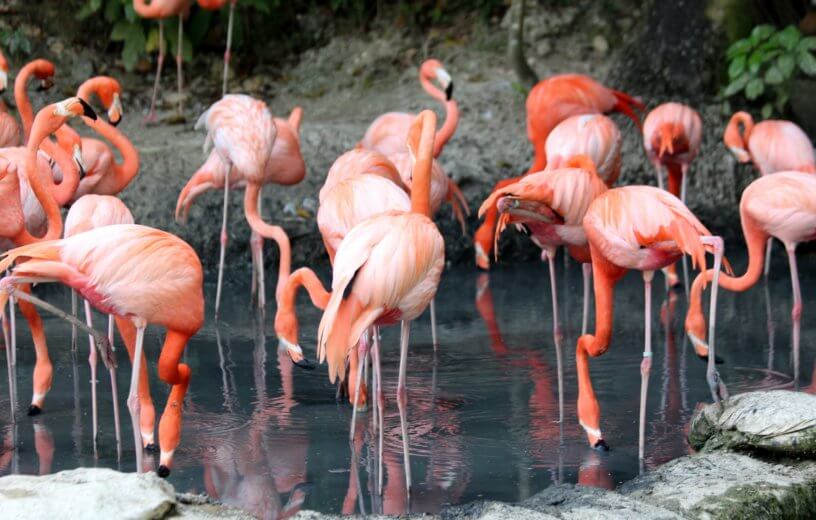EXETER, United Kingdom — Birds of a feather really do flock together as flamingos with similar personality traits “form cliques” with like-minded friends, a new study explains. Among Chilean and Caribbean flamingos, birds with similar personality traits tend to form social circles separate from their differently-wired peers — much like humans.
For example, the study finds bolder birds were more likely to stick together, while more submissive flamingos formed their own groups.
Experts at the University of Exeter and the Wildfowl & Wetlands Trust (WWT) hope this research helps people better understand the evolution of social behavior and improve the welfare of zoo animals. To conduct their research, scientists observed captive Chilean and Caribbean flamingos at wetland and wildlife reserve WWT Slimbridge, between Bristol and Gloucestershire in the southwest of England.
People are able to distinguish the two species thanks to their color differences. Caribbean flamingos have a brighter crimson or vermilion color, while Chilean flamingos are more pale pink. The team assessed the personalities of each of the flamingos by measuring consistent individual differences, such as a bird’s aggression or willingness to explore.
“Our previous research has shown that individual flamingos have particular ‘friends’ within the flock,” says Dr. Paul Rose, from WWT and Exeter’s Center for Research in Animal Behavior, in a university release.
“In this study, we wanted to find out whether individual character traits explain why these friendships form. The answer is yes – birds of a feather flock together. For example, bolder birds had stronger, more consistent ties with other bold birds, while submissive birds tended to spend their time with fellow submissive flamingos.”

Fionnuala McCully, who collected data for the study while studying for her Master’s degree in Animal Behavior at the University of Exeter, adds that flamingos also appear to have different roles based on their differing personality traits.
“Like humans, flamingos appear to carve out different roles in society based on their personality,” says McCully, now at the University of Liverpool.
“For example, we observed groups of aggressive birds which attempt to dominate rivals and tend to get in more fights. Meanwhile, the role of submissive birds may be more complex than simply being lower down the pecking order – they may be using a different approach to get what they need. The various different personality groups provide social help to their members, for example by supporting each other in the many squabbles that take place in flamingo flocks.”
The study, published in the journal Scientific Reports, finds Caribbean flamingos with a certain personality type have particular roles within their flock, though this same evidence was not apparent in Chilean flamingos. Although the reasons for this are still unclear, further studies like this could shed light on such patterns.
“Our findings need further investigation, both to help us understand the evolution of social behavior and to improve the welfare of zoo animals,” Dr. Rose concludes. “But it is clear from this research that a flamingo’s social life is much more complicated than we first realized.”
South West News Service writer James Gamble contributed to this report.

